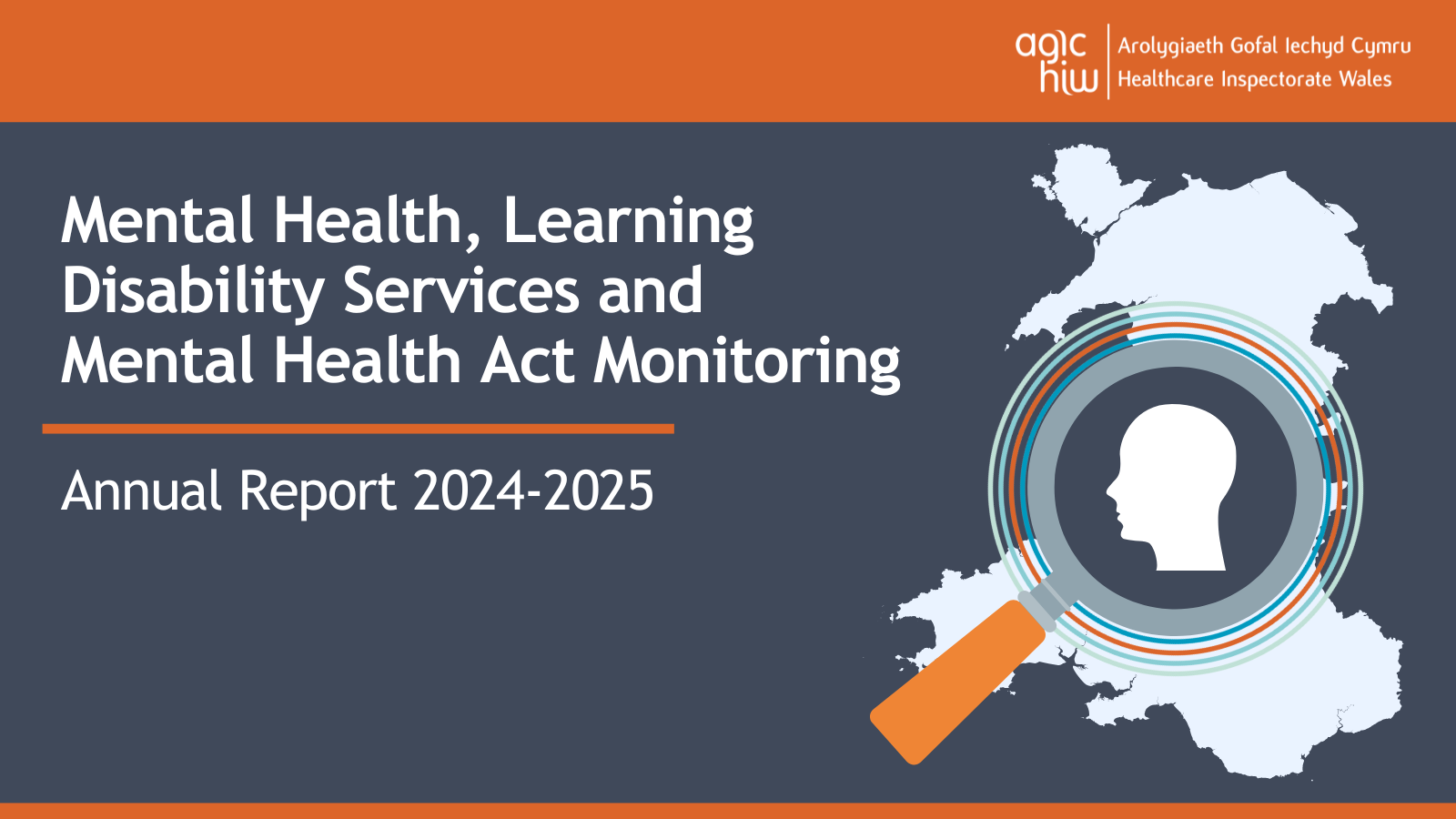Mental Health Services in Wales: Ongoing Challenges and Opportunities for Improvement
Healthcare Inspectorate Wales (HIW) has published its Mental Health, Learning Disability Services and Mental Health Act Monitoring Annual Report 2024-2025, which outlines themes of our work for mental health and learning disability services across Wales.

The report describes how mental health and learning disability services in Wales continue to face significant and persistent challenges. Monitoring of the Mental Health Act 1983 is a statutory responsibility delegated to HIW since 1 April 2009 by Welsh Ministers at which point responsibility for monitoring the functions of the Act was transferred from the Mental Health Act Commission.
This year’s report examines the standard of care within NHS and independent settings between April 2024 and March 2025, drawing on evidence from 25 on-site inspections, including 14 of NHS services and 11 of independent providers. These included hospital-based services and community mental health teams, with a continued focus on legal compliance, patient safety, and the quality of care.
During our inspection visits, we focused on several key areas considering:
- whether care planning and risk assessments were completed appropriately to ensure safe and effective care
- whether patients were informed of their rights and supported to understand their treatment
- whether services provided access to meaningful therapeutic activities and upheld patients’ dignity and autonomy.
While the report highlights examples of compassionate and person-centred care, it also identifies several areas where little or no improvement has been made since the previous reporting period. Workforce shortages, deteriorating care environments, and inconsistent governance continue to affect the quality and safety of care.
Key Findings
Across the 25 inspections carried out during the reporting period, we made a total of 394 recommendations. While examples of safe and compassionate care were observed, several areas continue to require improvement:
- Meaningful and Therapeutic Activities: Many services lacked structured activity programmes, with staffing gaps limiting access to therapeutic engagement
- Medication Management: Inconsistent governance persisted, with incomplete records, poor storage, and unsecured emergency medication noted across multiple settings
- Risk Assessment and Care Planning: In several settings, care plans and risk assessments lacked personalisation, with documentation errors and limited psychological input affecting quality
- Environment of Care: Environmental concerns were raised in 16 settings, including poor maintenance, infection control risks, and lack of dementia-friendly design. There is a clear need for sustained investment in the physical condition of mental health facilities, alongside robust estates management and regular environmental audits. Ensuring that care environments are safe, welcoming, and fit for purpose remains a key priority for improving patient experience and supporting recovery
- Staff and Patient Safety: Safety protocols were inconsistently applied, with issues around emergency preparedness, ligature risk assessments, and access to safety equipment
- Patient Privacy and Dignity: Patient access to secure personal space, gender-specific areas, and advocacy information, was inconsistent across services
- Workforce: High reliance on agency staff and vacancies in key roles continued to affect continuity of care, staff morale, and therapeutic engagement
- Governance and Leadership: Leadership visibility and audit reliability were variable, with fragmented governance structures noted in some independent providers and outdated policies in several settings.
We received 215 concerns regarding mental health and learning disability services, with 167 related to NHS services and 48 to independent providers. Common issues in NHS settings included compliance with the Mental Health Act, access and discharge procedures, and records management, while independent providers faced concerns around infrastructure and safeguarding. Additionally, we saw a notable rise in whistleblowing disclosures, totalling 40, which revealed serious cultural problems such as bullying, discrimination, and poor management, alongside issues with staffing, patient safety, and professional conduct.
Chief Executive Alun Jones said:
"This year’s report reflects the continued complexity and pressure facing mental health and learning disability services in Wales. While we recognise the dedication of staff and examples of good practice, the persistence of systemic issues requires urgent and coordinated action. HIW remains committed to working with providers and stakeholders to support improvement and ensure services are safe, effective, and person-centred."